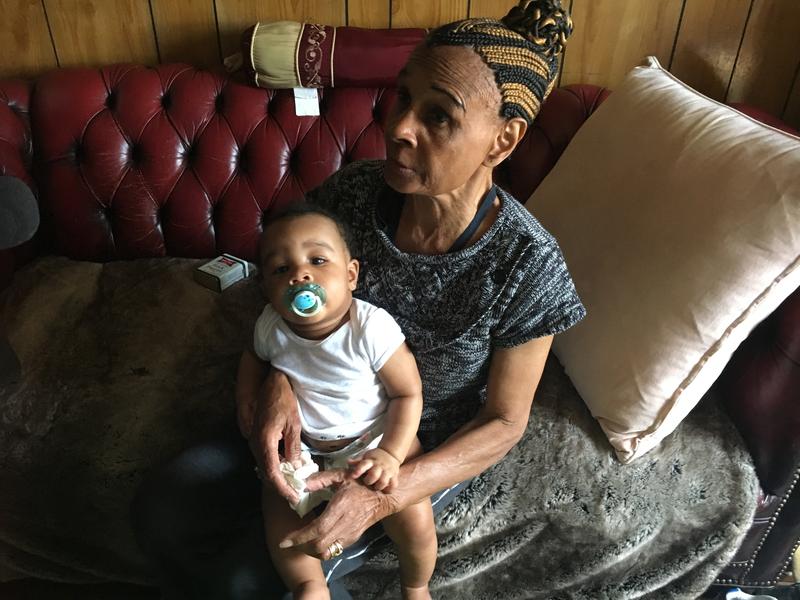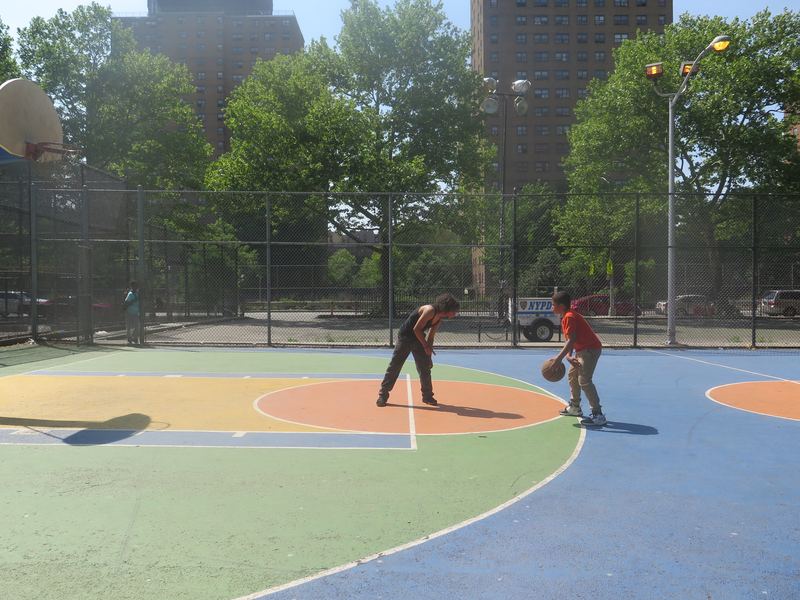
When the New York City Housing Authority received $100 million from state lawmakers in 2015, it was the first major infusion of state funds for NYCHA in almost two decades. And it was sorely needed: the inability to keep up with repairs had left residents with major issues such as leaky roofs, faulty boilers and mold.
Housing officials estimated the price to fix the nation's largest public-housing system at more than $16 billion. On the top of their to-do list: fixing 123 of the worst building roofs. Leaky roofs caused a host of other problems, and often ruined top-floor apartments.
But then politics interfered. Gov. Andrew Cuomo demanded both that the money stay out of NYCHA’s hands and that it not be used on large structural problems which, he argued, were NYCHA's responsibility.
"The $100 million is going to be controlled by the state because the state has a better track record at construction," Cuomo said.
More than two years later, a WNYC analysis of data provided by both the state Dormitory Authority and the New York State Assembly revealed a spotty track record. Of the NYCHA projects funded by the state's 2015 allocation, 57 percent of the work was incomplete. Construction had yet to begin at dozens of developments. There were 15 sites where plans hit road blocks, leaving projects in limbo; more than $11 million remains unspent.
This outcome largely was the result of the governor's decisions. First, he sent the message that the funds should not target large infrastructure fixes. Then he divided the money among New York State Assembly members who spread it among constituents in their districts. The funds were divided into 167 small projects. Adding to this were delays by the state Dormitory Authority which had to "refine" members' projects before they could begin work.
Dormitory Authority spokeswoman, Deborah Fasser, said that the status of projects changes daily.
"Of the $100 million allocated in fiscal year 2016, approximately $90 million worth of projects have been completed or are being executed by DASNY construction teams," Fasser said. "The remaining projects are being scheduled."
But no work has started at 1471 Watson Avenue, a small public housing development just East of the Bronx River. Tenant Virginia Moret said water poured into her home every time it rained.
"Every time it rains, it’s like it’s raining outside," Moret said. The former city employee raised two generations of children in her two-bedroom apartment on the top floor of her building. Family pictures lined her walls and her five-month-old great-grandson squirmed on a sofa near some peeling paint.
Moret said she had been dealing with this problem for 15 years.
"I'm not lying and I'm damn near 80-years-old so it's hard for me to move all this stuff," she said. "I have to get my grandchildren and children over here to move stuff."
Rachel Fee, director of the New York Housing Conference, said there should be a better way to fund major repairs.
"For this $100 million that the state allocated, it really should have gone to the most pressing needs and not be divided into dozens of projects," she said.
WNYC repeatedly asked the New York State Assembly leadership whether scarce money for public housing was used poorly and when projects would be completed. They ignored questions and refused to comment.
Moret’s development falls within the district of Assembly Member Marcos Crespo who allocated $150,000 to fix heating pipes in Moret's complex, not the roofs which would have cost $2 million. He said he wasn't sure where the pipe project stood.
"No, I can’t say I have the most recent update on where that is," he told WNYC.
Two other projects Crespo funded remain in limbo, including $661,000 for sewage pumps at Classon Point Gardens and $1.8 million for a new boiler at Soundview. Two developments did receive more than $400,000 in new appliances.
"Is it the most efficient system and approach? Maybe not," Crespo said. "But you know apparently nothing was getting done before either, or not enough, so we just got to not worry about who said what and when and just figure out where we are."
Spokeswoman Dani Lever said state oversight of the 2015 allocation ensured accountability for the public-housing repairs.
"Writing blank checks with taxpayer dollars to entities that are clearly mismanaged would have been irresponsible," she wrote in an email.
Yet dozens of projects remain incomplete and several were not well thought out. Webster Houses in the Bronx received $300,000 for a new basketball court and playground. Only the playground can’t be used right now because of falling bricks from a nearby building.
But things are about to change. Last week, federal prosecutors found that the conditions inside public housing were deplorable and that staff and management schemed to hide problems. The city signed a consent decree and a federal monitor will now oversee how money gets spent.

